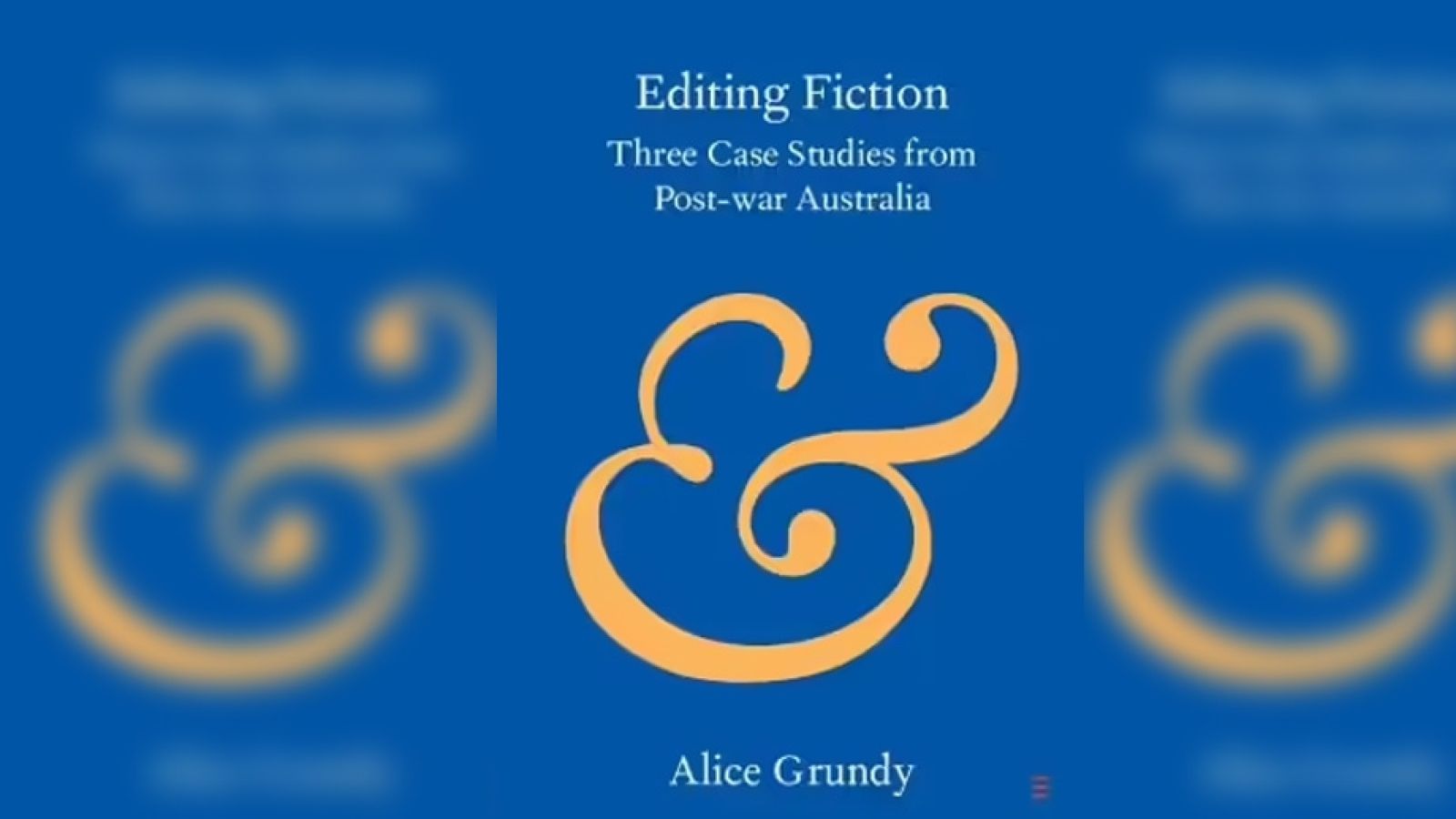New book offers insights into editing

The process of editing books is a complex one, with many contributors along the way. Thee are structural edits, copyeditors and proof-readers, who look at the big picture, style, and accuracy respectively. Then there are a great many informal editors whose input can shape a work, from family and friends, to professional colleagues. Each will have their own view, each their own motivation, and the field of advice will often give rise to tensions and contradictions.
ANU PhD student Alice Grundy has often heard a claim in her fifteen years working as an editor, that editorial standards are declining. But is it true? Answering this question was the genesis of what became a much broader look at the thus-far under-researched area of editing. The result is a book that offers unique insights into the tensions and participants in the editorial process.
Editing Fiction: Three Case Studies from Post-war Australia released through Cambridge University Press looks at the editorial process, at what has remained constant and what has changed, through the lens offered by works of three Australian novelists Jessica Anderson, Thea Astley and Ruth Park.
The book is built on extensive and detailed archival work, examining editorial practices closesly, the Coupling research into the experiences these authors had with the editorial process, based on rigorous research and access to archival insights, with her own experience over two decades as an editor allows Alice to explore to what extent things have changed.
“One of the changes over the period of this study is that the local Australian book industry blossomed,” says Alice. “When Jessica Anderson was first writing, she felt the need to find an overseas publisher since she thought there were no local houses that would be simpatico to her work.”
How far the industry has come, with women authors now far more widely published, and the industry today largely made up of women in the professional ranks. In an already under addressed area of research, that shift in dominance from male to female editorial staff is among the things typically overlooked in the literature, and is something Alice wanted to address through this work and her wider PhD project.
“Most of the writing on editing is about male editors and male authors with a particular emphasis on genius,” says Alice. “At the beginning I knew I wanted to focus on women and I also needed rich and accessible archives. I wanted a time period as close as possible to present but preferably with authors who have passed away so I can work with the texts themselves. Given these criteria, there were some authors who presented themselves as good candidates. A marvellous result of the research is just how wide-ranging the editorial experiences were of these three authors – and also how there are synchronises and unexpected connections between their experiences.”
Editing Fiction: Three Case Studies from Post-war Australia is for those curious about the process behind how books come to fruition, for students in the fields of editing and publishing, and for those whose research relates to Australian literature. For those working in editing now, the book offers an opportunity for introspection, and to learn from the choices and sometimes errors of those who have come before.
Editing Fiction: Three Case Studies from Post-war Australia is available now online from Cambridge University Press, and in print from September. Free online access is available until 2 August, 2022.